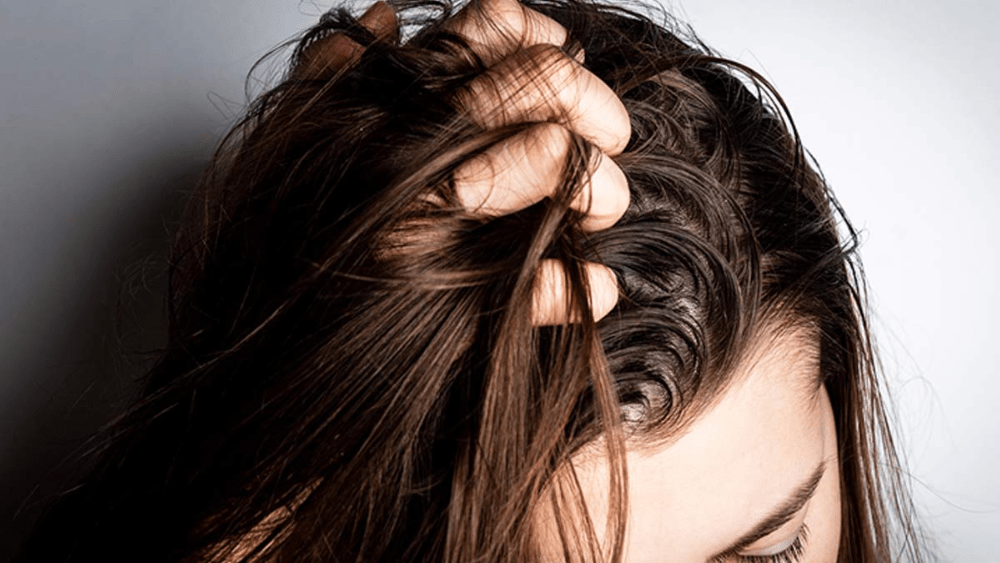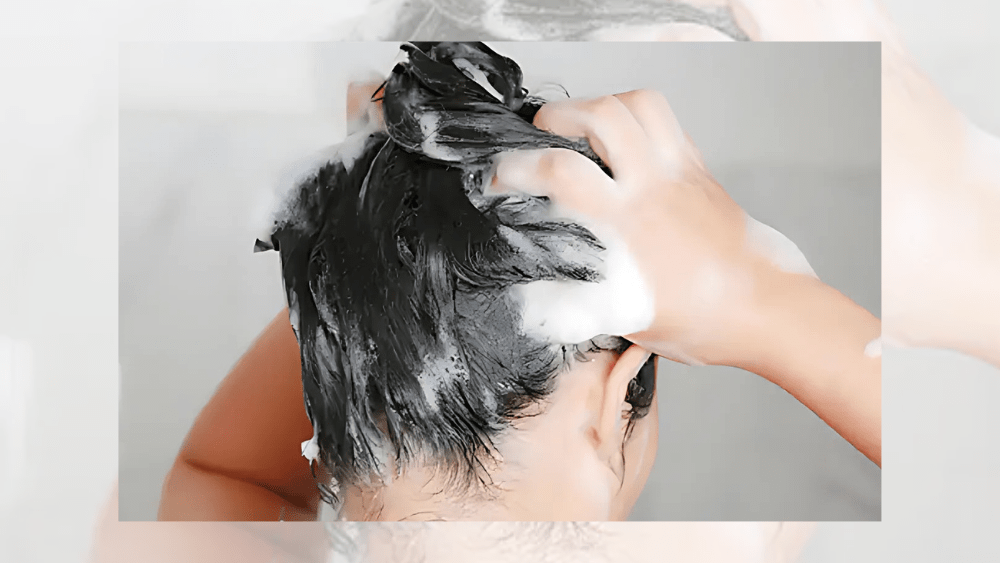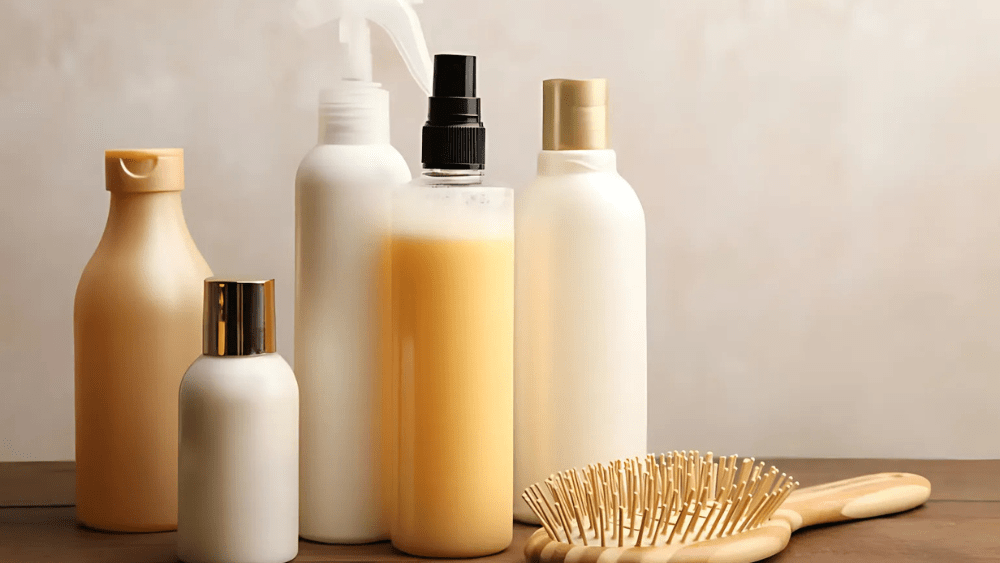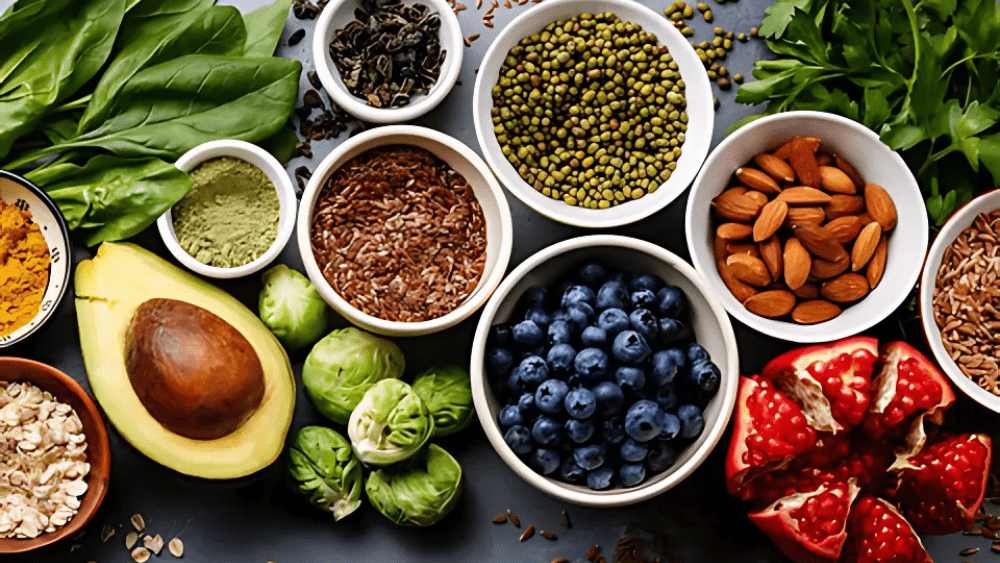Discover the best hair care tips for oily scalps. Learn how to control excess oil, choose the right products, and maintain healthy, grease-free hair effortlessly.
Introduction
Dealing with an oily scalp can be a frustrating experience. No matter how often you wash your hair, it may still end up looking greasy and lifeless by the end of the day. This excess oil isn’t just a cosmetic concern—it can also lead to scalp irritation, clogged hair follicles, and even hair loss if left unchecked.
Understanding the root causes of an oily scalp and learning how to manage it effectively is essential for maintaining healthy, vibrant hair. Whether it’s caused by genetics, hormonal changes, or improper hair care practices, the good news is that you can take control with the right strategies and products.
Understanding Oily Scalps
An oily scalp is a common issue that many people face, but understanding why it happens is the first step toward managing it effectively. Let’s explore what causes an oily scalp, the signs to look out for, and the factors that influence oil production.

What Causes Oily Scalps?
The primary culprit behind an oily scalp is the overproduction of sebum, a natural oil secreted by the sebaceous glands in your scalp. While sebum is essential for keeping your hair and scalp moisturized, too much of it can leave your hair looking greasy and weighed down.
Several factors contribute to excess oil production:
- Genetics: If oily hair runs in your family, you’re more likely to experience it.
- Hormonal Changes: Fluctuations in hormones during puberty, menstruation, pregnancy, or menopause can trigger overactive sebaceous glands.
- Improper Hair Care: Using harsh shampoos, overwashing, or applying heavy styling products can stimulate oil production.
- Diet: High consumption of greasy or sugary foods may increase oil production in your body, including your scalp.
- Stress: Elevated stress levels can lead to hormonal imbalances that may trigger oily skin and scalp.
- Environmental Factors: Humidity and pollution can exacerbate an oily scalp by attracting dirt and grime.
Signs You Have an Oily Scalp
Not sure if you’re dealing with an oily scalp? Here are some telltale signs:
- Greasy Hair Soon After Washing: If your hair feels oily within a day or two of washing, it’s a strong indicator of an oily scalp.
- Limp and Flat Hair: Excess oil can weigh down your hair, making it look lifeless and dull.
- Scalp Odor: Oil buildup can trap dirt and bacteria, leading to an unpleasant smell.
- Frequent Itching: Excess oil can mix with dirt and sweat, causing scalp irritation and itchiness.
- Scalp Acne or Pimples: Clogged hair follicles due to oil and dirt buildup can result in scalp acne.
Common Mistakes to Avoid
When dealing with an oily scalp, some well-meaning practices might actually worsen the problem. Avoiding these common mistakes can make a significant difference in managing excess oil and keeping your hair healthy and fresh.

Overwashing Your Hair
It might seem logical to wash your hair frequently to combat oiliness, but overwashing can strip your scalp of its natural oils. This sends your sebaceous glands into overdrive, producing even more oil to compensate.
Using the Wrong Hair Products
Heavy conditioners, styling gels, or hair sprays can weigh down your hair and exacerbate oiliness. Products containing silicones or heavy oils are particularly problematic, as they build up on the scalp and trap excess sebum.
Skipping Conditioner Entirely
Some people with oily scalps avoid conditioner altogether, fearing it will make their hair greasier. However, skipping conditioner can leave the ends of your hair dry and prone to damage, creating an imbalance.
Touching Your Hair Frequently
Running your fingers through your hair might be a habit, but it transfers oils from your hands to your scalp and hair. This can make your hair look greasy faster.
Using Hot Water to Wash Hair
Hot water may feel relaxing, but it can strip your scalp of natural moisture and stimulate sebaceous glands to produce more oil.
Ignoring Scalp Exfoliation
A buildup of oil, dirt, and dead skin cells on your scalp can clog hair follicles and worsen oiliness. Neglecting regular scalp exfoliation allows this buildup to persist.
Overloading on Dry Shampoo
While dry shampoo is a lifesaver for oily hair, using it excessively can lead to product buildup on your scalp. This can clog pores and increase oiliness over time.
Effective Hair Care Tips for Oily Scalps
Managing an oily scalp requires a combination of proper hair care practices, the right products, and lifestyle adjustments. Below are some proven tips to help you control excess oil and maintain healthy, fresh-looking hair.
Wash Your Hair the Right Way
Washing your hair effectively can significantly reduce oil buildup. Use a small amount of shampoo and focus on cleansing your scalp, where the oil originates. Avoid scrubbing your scalp too harshly, as this can irritate it and trigger more oil production.
Not all shampoos are created equal. Choose a shampoo specifically designed for oily scalps, preferably one that contains ingredients like tea tree oil, salicylic acid, or zinc pyrithione to control excess oil.
Recommended Ingredients:
- Tea tree oil: Reduces oil and fights bacteria.
- Salicylic acid: Gently exfoliates the scalp.
- Aloe vera: Soothes and balances oil production.
Condition Only the Ends of Your Hair
Applying conditioner directly to your scalp can make it greasier. Instead, focus on conditioning the mid-lengths and ends of your hair to keep them hydrated without adding excess oil to your roots.
Avoid Hot Water While Washing Hair
Hot water strips the scalp of its natural oils, causing your sebaceous glands to overcompensate by producing more oil. Use lukewarm or cool water to rinse your hair, which helps maintain a balanced scalp.
Incorporate a Clarifying Shampoo
Clarifying shampoos are great for removing excess oil, product buildup, and dirt from your scalp. However, they can be drying if used too frequently. Use a clarifying shampoo once a week or every two weeks to deep-clean your scalp.
Rinse with Apple Cider Vinegar
Apple cider vinegar (ACV) helps balance the pH level of your scalp, reducing oiliness and adding shine to your hair.
How to Use:
- Mix 2–3 tablespoons of ACV with a cup of water.
- Use this mixture as a final rinse after shampooing.
Exfoliate Your Scalp Regularly
Just like your skin, your scalp benefits from exfoliation. It removes dead skin cells, excess oil, and product buildup that can clog pores. Use a gentle scalp scrub or exfoliating brush once a week.
Try Dry Shampoo Between Washes
Dry shampoo is a quick and convenient solution to absorb excess oil between washes. It helps keep your hair looking fresh and volumized. Apply dry shampoo to your roots and allow it to sit for a few minutes before brushing it out.
Avoid Heavy Styling Products
Styling products like gels, pomades, and waxes can weigh down your hair and make it look greasy. Stick to lightweight, water-based products or avoid styling products altogether if possible.
Opt for Loose Hairstyles
Tight hairstyles can trap oil and dirt against your scalp, making it greasy faster. Choose loose hairstyles like ponytails or buns to keep your scalp ventilated.
Choosing the Right Products for Oily Scalps
Selecting the right hair care products for an oily scalp is crucial in managing excess oil and maintaining healthy, balanced hair. With so many options available, it can be overwhelming to know what will work best for your scalp type. Here’s a guide to help you choose the most effective products for controlling oil while keeping your hair healthy and vibrant.

Shampoos for Oily Scalps
The shampoo you choose plays a vital role in controlling oil production on your scalp. Look for shampoos that are specifically formulated for oily hair or oily scalps. These shampoos are designed to remove excess oil without over-drying your scalp.
Key Ingredients to Look For:
- Tea Tree Oil: Has natural antiseptic properties that reduce oil and prevent dandruff.
- Salicylic Acid: Gently exfoliates the scalp and helps prevent clogged pores.
- Zinc Pyrithione: Controls scalp oil and is effective against dandruff.
- Charcoal: Absorbs excess oil and impurities from the scalp.
- Clay: Helps to absorb oil and purify the scalp without stripping moisture.
Conditioners for Oily Hair
Conditioner is essential for keeping the ends of your hair hydrated, but it’s important to choose a lightweight option that won’t weigh your hair down. Look for conditioners that are designed for oily hair or have a balancing effect.
Key Features to Look For:
- Lightweight Formula: A conditioner that hydrates without being greasy.
- Non-Comedogenic: Ensure it’s non-comedogenic (won’t clog pores), especially if you’re prone to scalp acne.
- Hydrating Ingredients: Aloe vera and glycerin can provide moisture without adding extra oil.
Scalp Exfoliators and Scrubs
Exfoliating your scalp is a great way to remove excess oil, dirt, and dead skin cells that may clog hair follicles. Look for a gentle exfoliator that is specifically designed for the scalp. Avoid using body scrubs, as they can be too abrasive for this sensitive area.
Key Ingredients to Look For:
- Sea Salt: Helps exfoliate and detoxify the scalp.
- Sugar: A mild exfoliant that sloughs off dead skin cells.
- AHA/BHA: These acids exfoliate the scalp gently, helping to control oil and dandruff.
Dry Shampoo for Oily Hair
Dry shampoo is a lifesaver for those with oily scalps, as it helps absorb excess oil and refreshes your hair between washes. Opt for a dry shampoo with a lightweight formula that doesn’t leave a heavy residue.
Key Ingredients to Look For:
- Rice Starch: Absorbs oil and adds volume without leaving a powdery residue.
- Clay or Charcoal: Helps absorb excess oil and purify the scalp.
Scalp Toners and Balancing Sprays
Scalp toners are designed to balance oil production and maintain a healthy scalp environment. These products are applied after washing your hair and can help reduce excess sebum.
Key Ingredients to Look For:
- Witch Hazel: A natural astringent that helps control oil production.
- Tea Tree Oil: Reduces excess oil and has antimicrobial properties.
- Peppermint Oil: Provides a cooling sensation while balancing oil production.
Home Remedies for Oily Scalps
If you prefer natural solutions or want to complement your regular hair care routine with effective home remedies, there are many ingredients from your kitchen that can help control oil production and balance your scalp. These remedies are not only gentle on the scalp but also cost-effective and easy to incorporate into your routine. Here are some of the best home remedies for oily scalps.

Apple Cider Vinegar Rinse
Apple cider vinegar (ACV) is a powerful, natural astringent that helps balance the pH of your scalp and reduces excess oil. It also helps remove product buildup and dandruff, leaving your hair feeling fresh and light.
How to Use:
- Mix 2-3 tablespoons of apple cider vinegar with a cup of water.
- After shampooing, pour the mixture onto your scalp and massage gently.
- Leave it on for a few minutes, then rinse thoroughly with cool water.
Tip: Use this rinse 1-2 times a week for best results.
Lemon Juice Treatment
Lemon juice has natural antiseptic and oil-balancing properties, making it an excellent remedy for oily scalps. The citric acid in lemon juice helps break down excess oil and reduce the appearance of greasiness.
How to Use:
- Squeeze the juice of one lemon and mix it with 2-3 tablespoons of water.
- Massage the mixture onto your scalp for a few minutes.
- Let it sit for 5-10 minutes, then rinse with lukewarm water.
Tip: Avoid leaving lemon juice on your scalp for too long, as it can dry out the skin if overused.
Aloe Vera Gel
Aloe vera is known for its soothing and hydrating properties, but it also helps balance oil production on the scalp. Its enzymes clear away dead skin cells, reducing buildup that contributes to oily scalps.
How to Use:
- Extract fresh aloe vera gel from the plant or use store-bought gel.
- Apply the gel directly to your scalp and massage gently.
- Leave it on for 15-20 minutes before rinsing with cool water..
Tea Tree Oil Treatment
Tea tree oil is renowned for its antimicrobial and antifungal properties. It helps reduce scalp inflammation, clear buildup, and control excess oil production. It also helps prevent dandruff and other scalp issues.
How to Use:
- Mix 3-4 drops of tea tree oil with 2 tablespoons of a carrier oil, such as olive or coconut oil.
- Massage the mixture into your scalp and leave it on for 20-30 minutes.
- Rinse with warm water and shampoo.
Fuller’s Earth (Multani Mitti) Mask
Fuller’s Earth, also known as Multani Mitti, is a clay that has natural oil-absorbing properties. It helps remove excess oil, impurities, and dead skin cells, leaving your scalp refreshed and purified.
How to Use:
- Mix Fuller’s Earth with enough water or rose water to form a thick paste.
- Apply the paste to your scalp and leave it on for 20-30 minutes.
- Once it dries, gently scrub it off with lukewarm water and rinse thoroughly.
Green Tea Rinse
Green tea is packed with antioxidants that promote scalp health while controlling oil production. It also helps reduce inflammation and improves blood circulation to the scalp, encouraging healthy hair growth.
How to Use:
- Brew a cup of green tea and allow it to cool.
- Pour the cooled tea onto your scalp and massage gently for 3-5 minutes.
- Let it sit for 10 minutes before rinsing with water.
Conclusion
Managing an oily scalp can be a challenge, but with the right approach, you can achieve a healthy, balanced scalp that’s free from excess oil. By understanding the causes of oily scalps and avoiding common mistakes, you can make better choices when it comes to your hair care routine. Choosing the right products, such as lightweight shampoos, conditioners, and scalp treatments, is key to maintaining balance.
Incorporating natural remedies like apple cider vinegar, tea tree oil, and aloe vera can further help control oil production and keep your scalp fresh. Additionally, making small lifestyle changes such as washing your hair regularly, avoiding over-styling, and eating a balanced diet can significantly improve the health of your scalp and hair.
FAQs
How often should I wash my hair if I have an oily scalp?
Wash your hair 2-3 times a week to avoid stripping natural oils while controlling excess oil.
Can I use dry shampoo for an oily scalp?
Yes, dry shampoo helps absorb excess oil between washes but avoid overuse to prevent buildup.
Are there any foods that can help reduce oil production on the scalp?
Foods rich in vitamins A and zinc, like leafy greens and fish, can help regulate oil production.
Can an oily scalp lead to hair loss?
Excess oil can clog hair follicles, potentially leading to scalp conditions that affect hair growth.
Are there any natural oils I should avoid using on an oily scalp?
Heavy oils like coconut or olive oil may worsen oiliness. Opt for lighter oils like argan or jojoba.
Disclaimer: The information provided in this blog is for general informational purposes only. While we aim to offer helpful hair care tips for oily scalps, individual results may vary. Always perform a patch test before using new products or ingredients. If you have persistent scalp issues or severe hair concerns, it’s best to consult with a dermatologist or a hair care professional for personalized advice.

